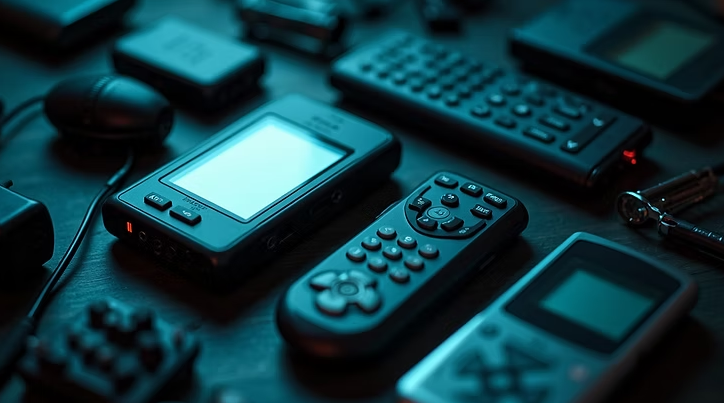
Skills You Need to Explore Unexplained Occurrences
Share
Exploring unexplained occurrences requires a unique blend of skills, knowledge, and intuition. Whether you are fascinated by ghostly apparitions, mysterious sounds, or other paranormal phenomena, understanding how to approach these events is crucial. This guide will walk you through the essential skills needed to investigate and make sense of the unknown.
Understanding Unexplained Occurrences
Unexplained occurrences can range from strange noises and flickering lights to full-bodied apparitions and sudden temperature drops. These events often defy conventional explanation, which is why a methodical approach is necessary.
To start, it’s important to develop a strong foundation in observation and documentation. This means:
- Taking detailed notes of what you experience.
- Recording audio and video evidence.
- Using tools like EMF meters, infrared cameras, and digital thermometers.
For example, if you hear footsteps in an empty hallway, note the time, location, and any other environmental factors. This helps build a case for further investigation.
Another key skill is critical thinking. Not every strange event is paranormal. Many occurrences have logical explanations such as electrical faults, drafts, or even animals. Being able to differentiate between natural and supernatural causes is essential.
Essential Skills for Investigating Unexplained Occurrences
To effectively explore unexplained phenomena, you need a combination of technical, interpersonal, and analytical skills.
Technical Skills
- Equipment Handling: Learn how to use paranormal investigation tools properly. This includes setting up cameras, using audio recorders, and interpreting EMF readings.
- Data Analysis: After collecting evidence, you must analyse it carefully. Look for patterns or anomalies that could explain the event.
- Safety Awareness: Some locations may be physically hazardous. Knowing how to stay safe while investigating is vital.
Interpersonal Skills
- Communication: You may work with property owners, witnesses, or other investigators. Clear communication helps gather accurate information and maintain professionalism.
- Empathy: Many people who experience unexplained occurrences are frightened or confused. Being empathetic can help build trust and encourage them to share their stories.
Analytical Skills
- Research: Investigate the history of the location. Past events, previous investigations, or local legends can provide context.
- Problem-Solving: Use logic and creativity to piece together clues and form hypotheses about what might be happening.
How to be a certified paranormal investigator?
Becoming a certified paranormal investigator involves formal training and gaining practical experience. Certification can enhance your credibility and improve your investigative skills.
Steps to Certification
Enrol in a Training Program
Look for reputable courses that cover the basics of paranormal investigation, including equipment use, evidence collection, and ethical considerations. For example, you can find comprehensive training that offers both theoretical and practical knowledge.
Gain Field Experience
Participate in investigations with experienced teams. Hands-on experience is invaluable for learning how to handle real-world situations.
Complete Assessments
Many certification programs require you to pass written exams or submit investigation reports to demonstrate your understanding.
Maintain Certification
Stay updated with new techniques and technologies by attending workshops and continuing education.
Certification not only improves your skills but also helps you network with other professionals in the field.
Tools and Technology for Exploring Unexplained Occurrences
Modern technology plays a significant role in paranormal investigations. Here are some essential tools:
- EMF Meters: Detect electromagnetic fields that some believe are linked to paranormal activity.
- Digital Voice Recorders: Capture Electronic Voice Phenomena (EVP) that may not be audible to the human ear.
- Infrared and Thermal Cameras: Visualise temperature changes and capture images in low light.
- Motion Sensors: Detect movement in areas where no one should be present.
Using these tools effectively requires practice and understanding their limitations. For instance, EMF meters can pick up signals from everyday electronics, so knowing how to interpret readings is crucial.
Developing Intuition and Emotional Resilience
While technical skills are important, intuition and emotional resilience are equally vital when exploring unexplained occurrences.
- Intuition: Many investigators report that gut feelings guide them to significant evidence or locations. Developing this skill involves spending time in the field and learning to trust your instincts.
- Emotional Resilience: Investigations can be mentally and emotionally taxing. You may encounter fear, scepticism, or even hostility. Building resilience helps you stay focused and objective.
Practising mindfulness and stress management techniques can improve your ability to handle challenging situations during investigations.
Continuing Your Journey in Paranormal Exploration
Exploring unexplained occurrences is a continuous learning process. Stay curious and open-minded, but always maintain a healthy scepticism. Join local or online paranormal groups to share experiences and learn from others.
Remember, the goal is not just to prove the existence of the paranormal but to understand and document these phenomena responsibly.
By combining technical expertise, critical thinking, and emotional strength, you can become a skilled investigator ready to explore the mysteries that lie beyond the ordinary.
Exploring the unknown is a thrilling and rewarding pursuit. With the right skills and mindset, you can uncover truths hidden in the shadows and contribute valuable insights to the field of paranormal investigation.
